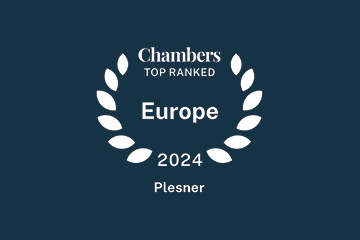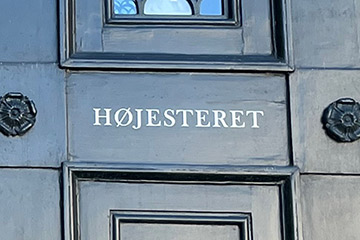Mind the gap! - Following Brexit Danish companies should consider including an arbitration- or choice-of-court agreement
As the UK's withdrawal from the EU became effective on 1 January 2021, the UK is no longer covered by the Brussels I Regulation which governs recognition and enforcement of judgments in civil and commercial matters within the EU. The UK's attempt to bridge this gap by acceding to the Lugano Convention has been blocked by the EU for the time being. This will undoubtedly affect the legal position of Danish companies dealing with British companies.
On 1 January 2021, the UK definitively left the EU and the Brussels I Regulation, which regulates the mutual recognition and enforcement of judgments between the EU Member States, thus ceased to apply to the UK. Going forward, national rules will therefore determine whether a lawsuit should be filed in Denmark or in the UK. A UK judgment can no longer be enforced in the EU Member States under the Brussels I Regulation - and vice versa. Consequently, the UK has applied to accede to the Lugano Convention on jurisdiction and the recognition and enforcement of judgments, but although the individual signatory states (Norway, Iceland, Switzerland and Denmark) have accepted the accession of the UK, the EU, which is also a signatory to the Lugano Convention, hesitates to give its consent.
As a consequence of Brexit, entering into a contract with a British company without including an arbitration- or choice-of-court agreement entails legal uncertainty because national rules will determine whether a lawsuit should be filed in Denmark or in the UK going forward.
Following Brexit, the scope for mutual enforcement of court decisions between Denmark and the UK has significantly decreased. Denmark and the UK are both signatories to the Hague Convention on Choice-of-Courts ("Hague Convention"), meaning that Danish and UK courts are bound to recognise and enforce judgments from a court in the other country - but only if the parties to the dispute have included an exclusive choice-of-court agreement in their contract. The Hague Convention thus only applies to contractual disputes and, furthermore, excludes several areas from its scope (e.g. the carriage of passengers and goods, IP rights other than copyright etc.). It also requires the completion of a preliminary "exequatur"-procedure prior to enforcement, whereby the bailiff's court will verify the judgement's compliance with several formal requirements.
As the operation of the New York Convention of 1958 on the recognition and enforcement of foreign arbitral award is not connected to EU membership and thus not affected by Brexit, arbitral awards rendered in Denmark and the UK will continue to benefit from direct mutual recognition and enforcement. As such, it will be easier to enforce an arbitral award than a judgment.
In cases where there is no choice-of-court- or arbitration agreement, a party wishing to give effect to a UK judgment in Denmark will need to file new proceedings before the Danish courts in order to obtain an enforceable judgment. Similar steps would presumably be required if a Danish company were to obtain enforcement of a Danish judgment in the UK. Naturally, this is both a cumbersome and costly process.
Against this background, Danish and UK parties may wish to consider including an arbitration agreement or at least a choice-of-court agreement in their contracts in order to gain certainty with respect to the forum for future proceedings, as well as the enforceability of any future judgements rendered between them.







